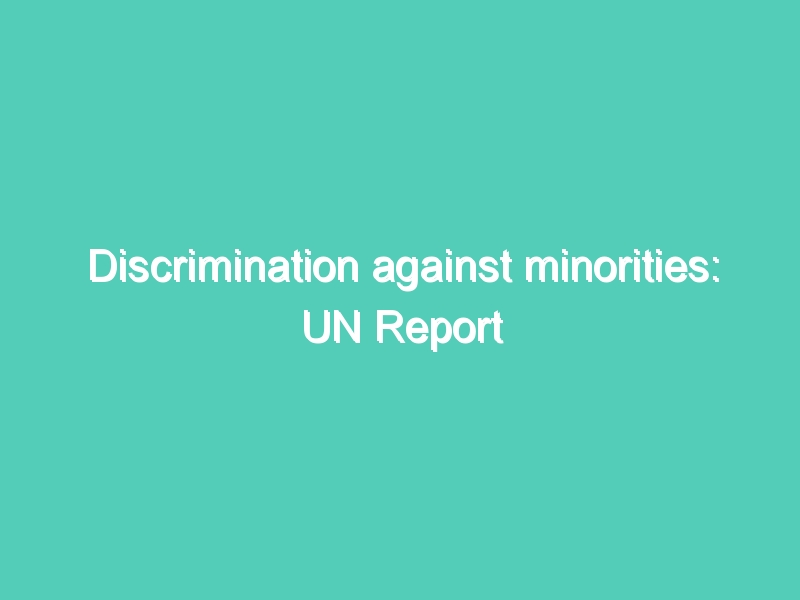Virtually all countries in the world have national or ethnic, linguistic and religious minorities within their populations. Many violations of civil, political, economic, social and cultural rights have a basis in discrimination, racism and exclusion on the grounds of the ethnic, religious, national, or racial characteristics of the victim group.
Minority issues have been on the agenda of the United Nations since it was established. In 1948 the General Assembly declared that the UN could not remain indifferent to the fate of minorities. The 2005 World Summit Outcome stated that the promotion and protection of the rights of persons belonging to national or ethnic, religious and linguistic minorities contributes to “political and social stability and peace and enriches the cultural diversity and heritage of society.”
The United Nations Declaration on the Rights of Persons Belonging to National or Ethnic Religious and Linguistic Minorities, adopted by the General Assembly in 1992 includes a list of rights for minorities, including the right to enjoy their own culture, to profess and practice their own religion and to use their own language. The Declaration reaffirms the rights of persons belonging to minorities to enjoy all human rights and fundamental freedoms in accordance with the principles of non-discrimination and equality before the law. Other key principles include the protection of existence, promotion and protection of identity, and the right to effective participation.
Source: https://www.un.org/en/events/humanrightsday/2009/discrimination_minorities.shtml



